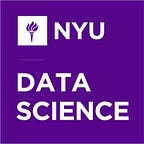NYU Scientists Invent New Protein for Regenerative Medicine
Data science, bioengineering, and radiology come together to create life-saving proteins
“How,” crooned British pop band the Bee Gees to their fans in the 1970s, “can you mend a broken heart?” Well, those working in the field of regenerative medicine may have an answer. Focused on discovering ways to replace or regenerate organ tissues that are damaged from aging or disease, the field envisions a future where those with spinal cord injuries can walk again, where entire organs can be regenerated for transplants and, of course, where broken hearts can be healed or replaced.
A major challenge facing the field, however, is creating biosynthetic materials that can not only deliver targeted drug therapy or tissue engineering to a damaged area, but also non-invasively visualize the surrounding cells so that doctors can monitor their patient’s treatment progress. Although some advances have been made, a full solution has not yet been discovered — but it looks like Associate Professor Jin Montclare from NYU Tandon, NYU Center for Data Science’s Director Richard Bonneau, and Associate Professor Youssef Zaim Wadghiri from NYU School of Medicine are on their way to cracking the case.
Over the last couple of years, Montclare, Bonneau, and Wadghiri’s research teams have been developing a groundbreaking protein-engineered coiled-coil that can self-assemble into fibers like collagen, a vital protein responsible for generating connective tissues in our bodies.
Their clever protein is the first of its kind to be engineered on a micrometer scale, and closely mimics the structural and molecular similarities of self-assembling proteins already found in nature. Moreover, their engineered protein microfibers can also bind to other small molecules like curcumin, meaning that they have the potential to store and deliver specific chemical agents to treat affected cells.
With the support of an NSF grant valued at $1,585,544, they are moving onto the next phase of their project: adding an imaging component. Knowing that processes like MRI scans map cells by coating them with fluorine (a chemical element acting as a tracer) or iron oxide nanoparticles (magnetic contrast agent), they want to tag their protein engineered coiled-coil microfibers with the same element or tracer so that doctors can use biomedical imaging to determine whether the drugs have been successfully delivered, and gather data about treatment progress.
Taking a computational approach, they will further develop their protein engineered coiled-coil using Rosetta, a powerful platform that not only performs protein folding predictions but also helps biologists design new proteins.
Crucially, data collected from fully characterized proteins and initial experiments will be used to refine new computational designs as they are made. Bonneau, a core member behind Rosetta’s development, will provide his expertise during the project’s design and testing stage, while Wadghiri’s radiology experience will guide the construction of appropriate fluorine probes for bioimaging.
Their innovative project is poised to transform the field of regenerative medicine. And, it also incorporates an excellent mentoring opportunity for young scientists. As part of NYU’s Scientific Outreach and Research program (SOAR) founded by Montclare, undergraduates will be hired to teach the high school students of Urban Assembly Institute for Math and Science for Young Women (UAI) about the biomaterials and biomedical imaging that are a part of this research project.
“The goal here,” Montclare explained, “is to successfully impact these young women in a way that links all these disciplines together while also relating the work to practical real-world applications such as imaging and biomedicine.”
By Cherrie Kwok
